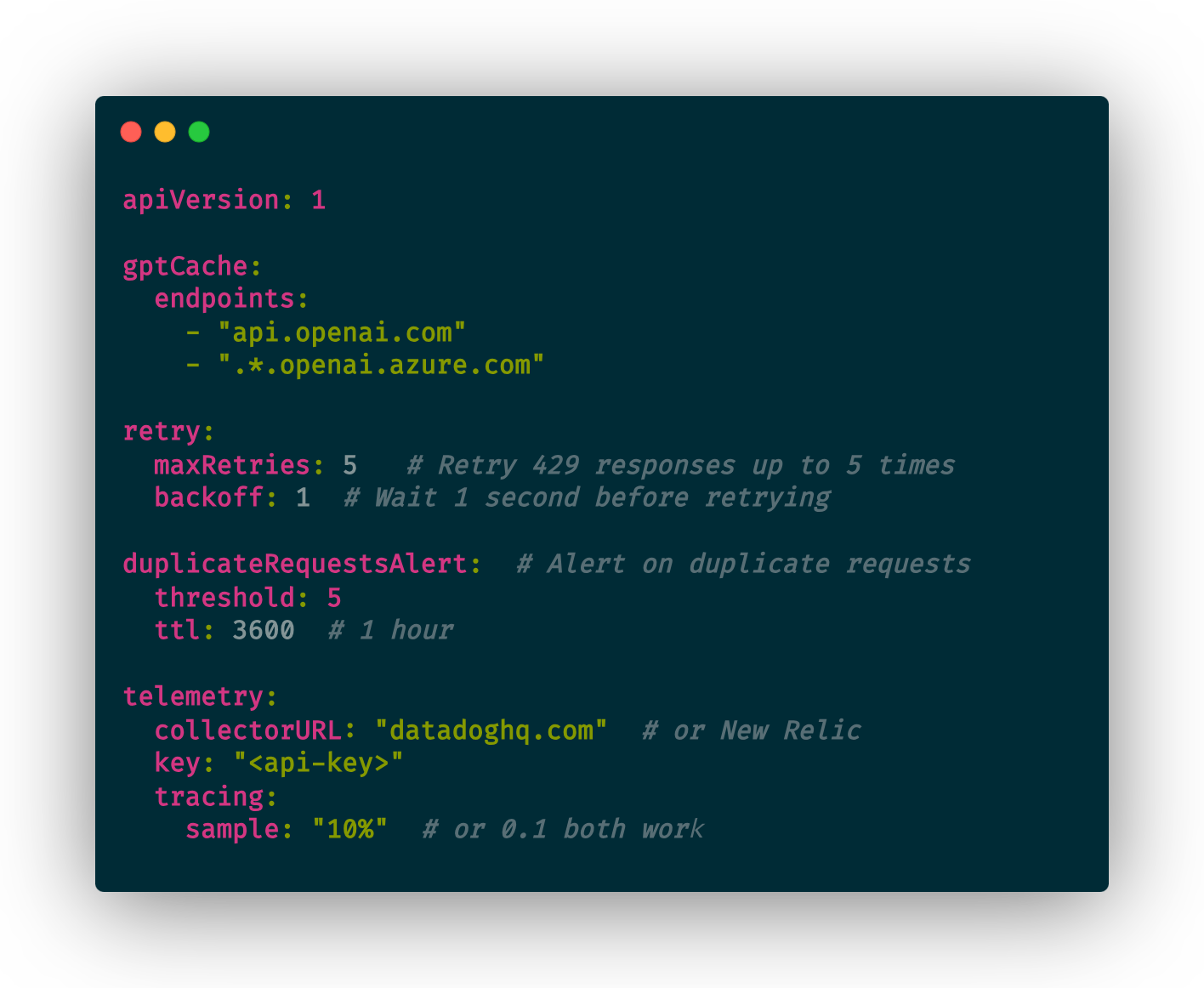

Get detailed API usage dashboards. Validate the API provider's claim with your own logs. Collect real-time usage. Get alerts when you are about to hit your quota.
Monitor third-party API performance and availability in real-time. Ensure that they are meeting their SLAs. Don't trust their status dashboards, have your own.
Identify slow APIs. Identify APIs that are not being used. Identify duplicate API calls. Get a built-in caching layer to improve performance and reduce costs, especially, for LLMs like OpenAI.
OPENAI_API_BASE=https://gptcache.ashishb.net/api.openai.com/v1
OPENAI_API_BASE=https://gptcache.ashishb.net/SatyaNadella.openai.azure.com